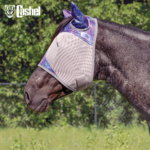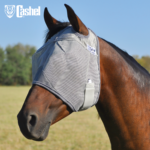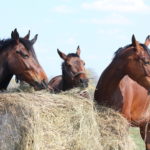Q: Recently I have had some really good rides on my Hanoverian gelding. When he goes well, I keep the sessions short—sometimes stopping after 20 or 25 minutes—to reward him. Although I feel that keeping the sessions short will cause him to lose some muscling, I also feel it’s more important to reward him, keep him happy and not focus too much on perfecting a specific movement or solving a problem. How do you keep your horse happy while helping him improve as a dressage horse and keeping him fit enough to show?
Leah McMurray
Portland, Oregon
A: I admire anyone who understands that a happy horse is a more willing training partner. Those fortunate enough to have a horse that enjoys his work and is a quick study have to find the right balance between reward and conditioning. I think variety, both in exercise and reward, is the key to your challenge.
A wide repertoire of exercises is a trainer’s best friend. Constant drilling of a movement is boring for horse and rider and can lead to bad habits. Horses need to be challenged with different exercises and gymnastic patterns that focus on the same movement or skill. That builds strength and keeps them mentally alert. Rearranging the sequence of exercises and varying the ways you break up the work confirm that movements are well understood and promote mental as well as physical engagement. Always consider the goal of taking a horse to his limit but never over. That is when horses start to shut down and begin to dislike their work.
Horses are tremendous creatures of habit. It’s easy for riders to forget this as they run through a familiar sequence of training movements each day. A horse ridden 20 to 25 minutes each day will soon find any schooling session longer than that unacceptable and will let his rider know through some form of undesirable behavior. Following a successful and challenging 20-25 minute session, try just letting the horse stretch at the walk, trot or canter for a complete aerobic workout. This could be done in or out of the ring for variety.
In my experience, certain horses benefit from two rides each day at some point in their training. One session could be more strenuous but short in duration while the other session is just hacking or working on riding forward and straight. Longeing is another beneficial way to develop cardiac fitness. Keep in mind that longeing isn’t limited to the schooling ring and working in a field with a bit of an incline can be a great option. The horse won’t feel confined to the arena and may consider the session more like recess than schoolwork.
Keeping a smart, talented horse happy and challenged is not easy. Varying routines with hacking, cavalletti work and even jumping can build strength and agility while keeping the horse eagerly engaged. If a rider is not comfortable over fences, she can build a chute or longe her horse over a fence. This work strengthens a horse’s sitting power and shoulder freedom.
Just like people, horses appreciate many types of rewards. Ask a little and praise a lot is my motto. A simple stroke on the neck followed by a “good boy” is a start. There is nothing wrong with using your voice if your horse responds positively. Despite the occasional frown from European trainers I’ve worked with, I do carry sugar as a reward. If my horse is having a hard time understanding a concept and I feel he made a positive effort to understand, I will stop, tell him “good boy,” and give him a sugar cube while letting him stand for a moment on a long rein. I want my horses to want to be willing partners, not slaves. As with most training concepts, rewarding can be overdone. I believe a horse can tell if a reward is sincere and comes from the heart.
Without a doubt, there have been times when I jumped off my partner after 20 minutes of good work and rewarded him all the way back to the barn. He knew this was a heartfelt reward and that he had done something exceptional that pleased me. Matching the size of a reward to performance, correct riding, variety in training exercises and developing a horse’s fitness is the formula that will keep your partner happy.
Gigi Nutter is a USDF bronze, silver, and gold medalist. She has trained numerous horses as well as students through the FEI levels. Based in Whitesburg, Georgia, she teaches out of her private Touchngo Farm while also traveling to give clinics.





